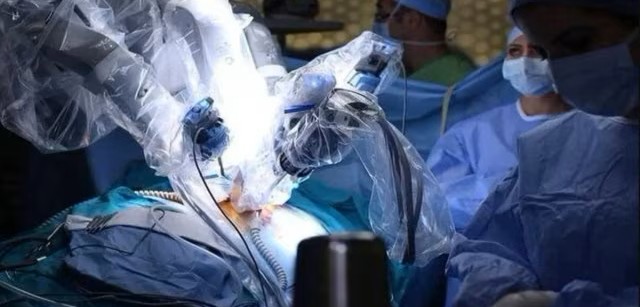(3 Minutes Read)
Morocco has completed its first full year of robotic surgery, signaling a transformative shift in its healthcare landscape. The milestone is being hailed as a breakthrough, particularly by the Oncorad Group, which has been at the forefront of introducing this cutting-edge technology in the country. According to the group, this advancement has the potential to redefine surgical care in Morocco.
The journey began on May 27 of the previous year, when Oncorad conducted its first-ever robotic surgical procedure. Since that landmark operation, the group has carried out a total of 178 surgeries using the robotic system. The majority of these procedures have focused on urology, with over 100 prostate cancer surgeries performed, demonstrating both the demand and the efficiency of robotic assistance in complex interventions.
However, the most groundbreaking event came in November, when a Moroccan surgeon made history by performing a remote surgery on a patient located in Shanghai, China — a staggering 12,000 kilometers away. This operation set a new world record for the longest-distance telesurgery ever achieved. A follow-up remote operation between Casablanca and Tangier further confirmed the reliability and potential of this technology.
“This achievement marks Morocco’s entry into the league of nations leading in robotic surgery,” said Dr. Younes Ahalal, a key figure behind these advancements. “What was once the domain of global technology powerhouses is now accessible to emerging nations like ours.”
Beyond clinical applications, Oncorad has heavily invested in training and knowledge dissemination. The group has organized a series of workshops covering multiple medical specialties, helping to build national expertise. In addition, it has actively participated in prominent international medical conferences, spanning locations from Marrakech and Bordeaux to Thailand.
Established in 2000, Oncorad now operates state-of-the-art healthcare centers in Casablanca, Marrakech, Agadir, and Tangier. It has earned a strong reputation for integrating advanced technologies such as artificial intelligence-assisted imaging and precision radiotherapy into its services.
Looking forward, the group has ambitious plans to broaden access to robotic surgery across the country. It hopes to position Morocco as a regional hub for medical technology and surgical innovation.
While Oncorad is leading the charge, Morocco’s broader robotic surgery infrastructure is still in its early stages but steadily growing. The public hospital in Agadir now utilises a Revo-I system from South Korea, while Casablanca’s private AKDITAL hospital network operates several Da Vinci Xi robots, allowing for minimally invasive procedures across a variety of fields, including urology, gastrointestinal surgery, gynaecology, and ENT (ear, nose, and throat).
Despite the advancements, cost remains a major challenge. A typical robotic procedure costs around MAD 80,000 (approx. USD 8,000) and is usually paid out-of-pocket by patients, as insurance coverage is currently limited. However, discussions are underway between healthcare authorities and insurers to establish reimbursement frameworks. The government has also announced plans to equip each major university hospital in Morocco with a robotic surgery unit.
A particularly promising development is the potential of remote surgery to revolutionise healthcare access in rural areas. A recent example took place in May 2025, when a patient in Laâyoune underwent successful surgery remotely conducted by a surgeon based in Casablanca. The operation proceeded without complications, offering a glimpse into how technology could bridge the urban-rural healthcare divide.
Read Also;
https://trendsnafrica.com/ghana-to-deploy-telemedicine-to-extend-healthcare-to-far-flung-regions/
As Morocco builds its internal capabilities, training has become a top priority. The country’s initial forays into robotic surgery were heavily supported by international and diaspora surgeons, but local surgical teams are quickly gaining expertise. It’s expected that Moroccan surgeons will soon independently lead these procedures without external oversight.
With collaborative efforts from the government, private healthcare providers, and medical institutions, Morocco is working toward the goal of mainstreaming robotic surgery by 2030. If these efforts succeed, the country is well-positioned to become a leading center of surgical innovation in Africa and the broader region.





